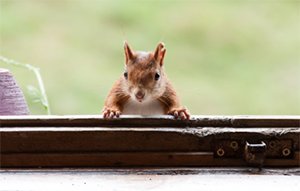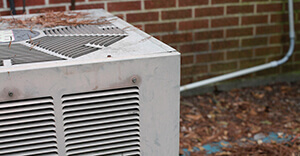
Pests are every homeowner’s worst nightmare. From ants in your kitchen to spiders and squirrels in your attic or crawl space, the threat of insects and pests forces us to look for ways to prevent pests from moving into our houses. Even worse is when the pests inhabit your HVAC system. If left to it, pests can make your HVAC system their permanent home , causing a variety of types of damage and related HVAC problems. Therefore, it is important to know how to prevent pests from inhabiting your system.
With hot and humid St. Louis summers and cold winters, the HVAC system is an important appliance in every home. As such, you should make sure that it is always in a great working condition. Galmiche & Sons has been in the HVAC industry for many years, and we have experienced and trusted technicians by our side. Contact us for professional advice on how to prevent pests, repair solutions for HVAC damage caused by pests, as well as any other heating & air conditioning needs for your St. Louis area home or business. Call us today at 314-993-1110.
Here’s What to Do to Prevent Pests in Your HVAC System

Before you can take steps to prevent pests from living in your HVAC system, you need to know exactly what to look for and where insects and pests are most likely to be found. Pay attention to signs of pests, such as damage or droppings, and note things that are likely to attract pests into your HVAC system. Here are a couple of places that you can start with:
- Check Your Ductwork – Most HVAC systems have ductwork that passes through the whole house. This means that it also passes through areas that are prone to pests such as the attic and the basement. With time, the ducts may develop cracks and openings through which pests get into the HVAC system. To prevent this, you should have a professional contractor seal the ductwork completely.
- Control Humidity – Most pests thrive better in a humid area. It is important that your HVAC keeps the humidity levels below 60%. There are several issues and problems that can result in high humidity. Low refrigerant and a dirty coil are just some of the reasons. For help with issues controlling humidity, you will need a professional to prevent pests from breeding in your HVAC system.
- Eliminate Moisture – When it comes to preventing pests in your HVAC system, it is important to eliminate moisture as any excess moisture can provide a good breeding ground for insects and bacteria. For example, the drip pan can collect water encouraging insects to breed. Although it is quite normal to have some water while the AC is running, for any standing water you should call in the professionals immediately.
- Seal All Entry Points – To prevent pests from even getting into your HVAC system in the first place, it is important that you seal all the entry points. You should especially pay close attention to points where the pipes go into your home. For efficient sealing, it is important that you get the sealing done by professionals.
- Monitor Your Outdoor Unit – Outdoor heat pumps and air conditioner units make an inviting place for animals and pests to take shelter, especially when not in use. Keep a regular eye on your outdoor systems to spot signs of pests or damage. You should also keep the area around your unit free from the buildup of leaves and other yard waste to avoid encouraging animals to burrow and nest.
Call Galmiche & Sons Today for Professional Tips to Prevent Pests in Your HVAC System
Whether you need help preventing pests in your HVAC system or you need HVAC repair for damage caused by pests, our technicians at Galmiche & sons are more than willing to help you. We can handle all of your heating & air conditioning issues. Give us a call today at 314-993-1110 to get top-notch HVAC services in St. Louis.









